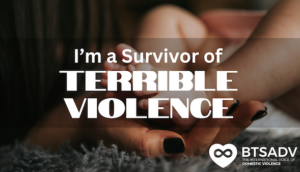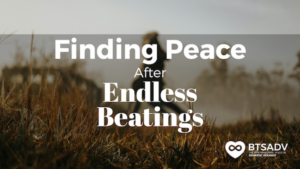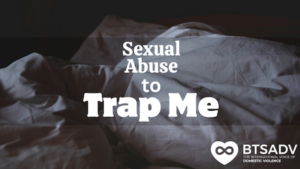
By Jenn Rockefeller
Language is at the core of what we are as a society. It’s how we communicate our wants, needs, thoughts, and emotions. Sometimes using a slightly different word to convey something can give a statement an entirely different meaning. When we talk about something as serious as domestic violence, sometimes we use language that doesn’t carry significance and thus, the situation is downplayed.
Minimizing abuse
To minimize is to reduce to the smallest amount or greatly underestimate the true importance of something. So when domestic violence victims tell themselves, “Oh it’s not that bad,” they are, by definition, not admitting the true depth of the problem at hand or, if they do realize the severity, they don’t want to admit it to others.
The more a victim minimizes the abuse they are experiencing, the more likely they are to not even identify their experiences as domestic violence. This puts victims in a more dangerous situation and exposes them to further abuse.
Why does a victim minimize the abuse to begin with? Victims may pretend that the abuse “isn’t that bad” for a variety of reasons. They may fear that no one else could care for the them like the abuser; they may not want to acknowledge that the person who claims to love them is the one hurting them; or they may not be willing to admit that they are experiencing domestic violence at all.
The language we use
Everyone (victims, survivors and society in general) uses specific language to talk about domestic violence. But that specific language can sometimes make abuse seem less dangerous. It’s vital that victims and survivors call it what it is–violence–and the definition of violence is emotional or physical force intended to hurt, damage or kill.
No matter how unimportant the act seems to the victim, it’s essential to use the phrases and terminology that will garner awareness and bring justice. Below are just a few phrases that victims often tell themselves (and others) to minimize the severity of the abuse:
- “Oh it’s not that bad.”
- “(The abuser) only emotionally abused me.”
- “(The abuser) only hit me twice.”
- “It’s not like any bones were broken.”
- “(The abuser) just had a bad day, that’s all.”
- “My friends and family don’t know (the abuser) like I do.”
- “I should have listened to (the abuser) when I was told to do something.”
The language we use to talk about domestic violence makes it seem less dangerous than it really is. But how is it less dangerous? When victims don’t immediately recognize the severity of abuse or downplay it, they are essentially staying in a relationship that may escalate into something more violent. By the same token, when victims downplay the severity, the courts and the authorities may not take it seriously either. They may say, “Well if it wasn’t that bad, why are you making a complaint then?” Authorities may not have the “incentive” to investigate the crime.
The importance of language
Words are powerful and, when used in proper context, can have a significant effect on how society views certain situations. The language we use to describe domestic violence is one way we can control this societal perception. Using stronger and more accurate language to convey the severity can garner more widespread awareness. Even the way we communicate can help–make direct eye contact and use urgency in your voice. Use more powerful words. When we use words that carry more weight to them, then others around us will know we are serious about our situations.
If you or someone you know is in an abusive relationship, there is help. You can visit the Break the Silence website at www.breakthesilencedv.org or chat with one of our helpline advocates at 855-287-1777.









